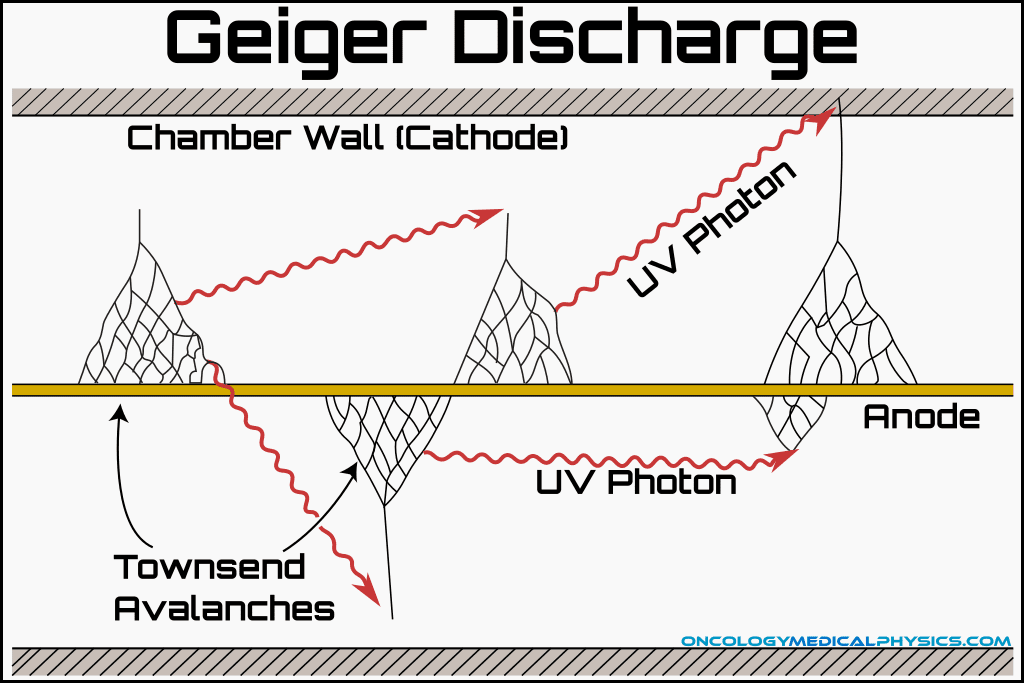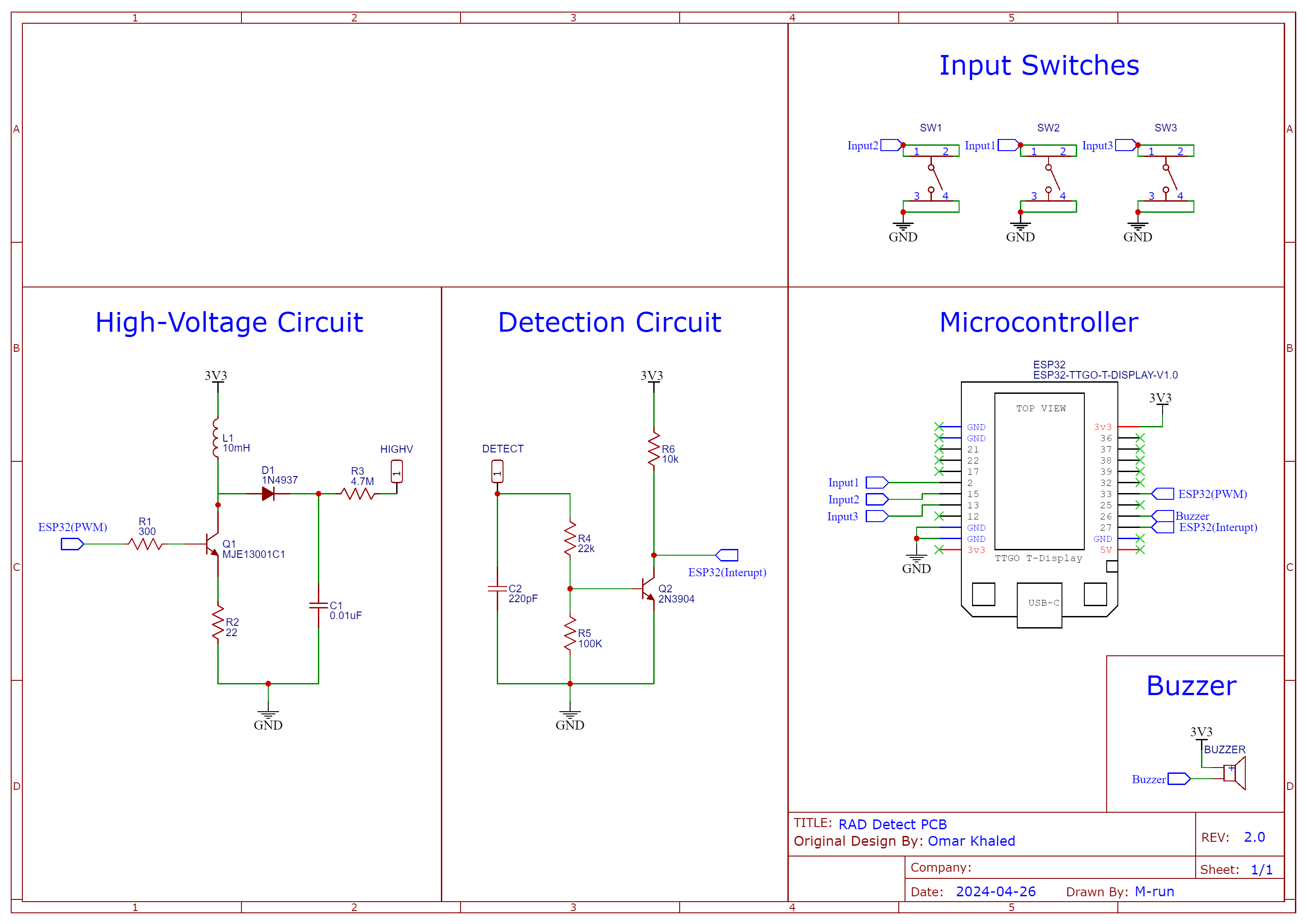Intro
Introducing OpenRad, a simple radiation monitoring solution powered by the SBM-20 GM tube and TTGO ESP32 microcontroller. this project offers a user-friendly approach to tracking and measuring radiation levels.
With OpenRad, you can build your own dosimeter without complexity. The SBM-20 GM tube detects ionizing radiation while the TTGO ESP32 gathers and transmits data to its built-in website.
Additionally, MQTT helps with seamless communication between the device and any other device. allowing for easy integration with other systems and applications.
The code and design files are all available at the GitHub Repository.
So, let’s dive straight in.
Features:
- Radiation Detection and Data Logging: OpenRad measures and logs the radiation level over time. It also keeps track of the accumulated dose ( which can be reset in the settings).
- Simple On-Device Interface: The TTGO ESP32 screen features a straightforward interface displaying radiation data, battery status, and a settings menu for easy device configuration.
- Real-Time Monitoring and Hosted UI Interface: using WebSocket, OpenRad enables real-time communication between the device and the hosted website. Users can seamlessly monitor radiation levels and configure device settings via the user-friendly web interface.
- Wi-Fi Connectivity: OpenRad connects to the Wi-Fi network, enabling remote access to the device and real-time updates on radiation levels. (Users may need to adjust port forwarding settings for remote access.)
- MQTT Connectivity: Additionally, the device interfaces with MQTT, making for easy integration with other devices and platforms.
- High Radiation Alert: Users can set an alert for dangerous radiation limits.
Theory of Operation:
Geiger-Muller tubes are devices that detect radiation by using a gas-filled chamber with an electrode inside. When radiation enters the chamber, it ionizes the gas, creating a detectable electrical pulse. The SBM-20 tube is a type of Geiger-Muller tube that is sensitive to beta and gamma radiation. It requires a stable high voltage (around 400 volts) to operate.
To generate the high voltage needed, a boost converter circuit is used. This circuit steps up the input voltage to a higher output voltage using a PWM signal from a microcontroller. The boost converter operates based on a fixed duty cycle, where the ON and OFF times of a switching transistor control the voltage output.

When a high-energy particle hits the GM tube, it ionizes the gas, creating a pulse that can be detected by a transistor amplifier. This amplifier sends an interrupt signal to the microcontroller, indicating the detection of radiation.
Schematic:

Key components include:
- Geiger-Müller Tube (SBM-20): The primary radiation detection element, which detects ionizing radiation and generates electrical pulses proportional to the radiation intensity.
- High-Voltage Circuit: Provides the necessary high voltage (~400V) to operate the GM tube, ensuring optimal detection sensitivity.
- Detection Circuit: Amplifies and processes the electrical pulses generated by the GM tube, preparing them for analysis.
- Microcontroller (TTGO ESP32): Controls the operation of the device, including data acquisition, signal processing, and user interface interaction.
- Display: Provides visual feedback, displaying radiation levels, alerts, and other relevant information.
- Built in Wi-Fi Module: Enables connectivity to Wi-Fi networks, allowing users to access the device remotely and receive real-time updates on radiation levels (MQTT).
PCB Design:
- Single-Layer Layout for Ease of Manufacturing:
- OpenRad's PCB design adopts a single-layer layout for ease of manufacturing, simplifying the production process and making it accessible for hobbyists and enthusiasts alike.
- Compact by Design:
- OpenRad's PCB is designed to be small and easy to handle, with components arranged to save space. This makes the device handy and practical for different uses.
- Order off PCBWay:
- Order directly from PCBWay using the following Shared Project.
- Shoutout to PCBWay:
- Huge thanks to PCBWay for their awesome support! They offered to send us the PCBs, and honestly, the quality and finish were great. We're super grateful for their generosity and partnership in making this project happen.

Software:
OpenRad's software architecture has several components, each serving a purpose and contributing to the device's functionality.

The software can be grouped into two categories:
Embedded Software:
- PlatformIO: OpenRad is developed using PlatformIO which streamlined the development process.
- LVGL: used to create the user interface on the device's display.
Web Interface:
- Pure HTML, CSS, JS Website: The hosted website on the ESP32 is built using pure HTML, CSS, and JavaScript, providing a lightweight and responsive interface.
Conclusion
OpenRad came about because we wanted to make radiation monitoring simpler. And we shared it because we thought, maybe Somone will find it useful.
We're excited to share our project with everyone and hope it inspires others to get creative.
Again, a big thanks to PCBWay for their support in making this happen!
What should we do next?
 Omar Khorshid
Omar Khorshid